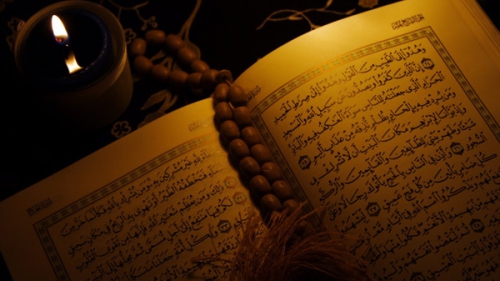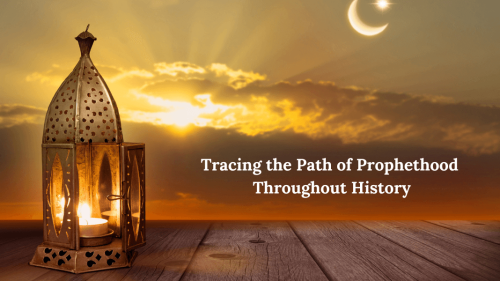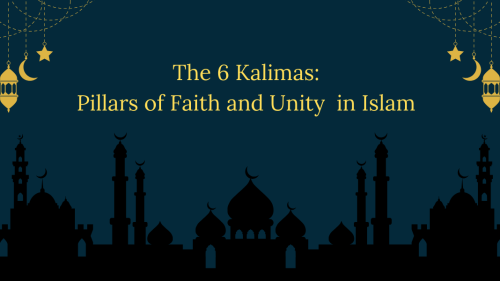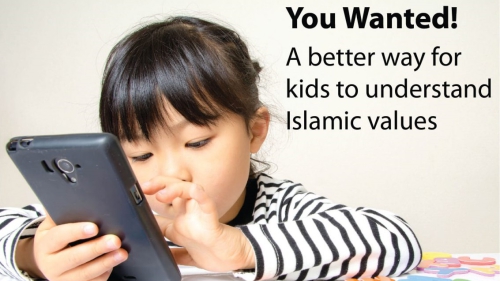Peacebuilding and Conflict Resolution in Islam
Introduction
Humankind is besieged with all sorts of conflicts. But instead of dealing them through peaceful means, we are often faced with its Darwinian resolution - "The Might is Right" concept, that is, the powerful resort to force and impose their will on the weak. But while this mechanism may apply to others of God's creation, it does not work for Homo Sapiens: Because we are endowed with a moral sense, which overshadows all our behavior. This moral dilemma requires tackling the underlying problem adequately. And unless it is tackled properly, the conflict persists: It does not go away and comes back in myriad forms, becoming ever more pernicious.
This moral sense is strong in Islam. Islam means peace in all its forms and asks for justice in resolving all conflicts. So that the aggrieved party is satisfied with the result and being at peace works for peace with all concerned.
Islamic Peace Fundamentals
Islam literally means two basic concepts: First, Islam from the Arabic verb salima/yaslemu means to surrender or submit to God. And second, from its Arabic noun salam - from letters seen, lam, meem (or s, l, m) - it means peace or to acquire peace. A daily example of this is provided by Muslims in their greetings of Assalamu Alaykum, meaning peace be with you.
According to the Qur'an, Islam is what all prophets and messengers of God, from Adam to Muhammad and others in between (peace and God's Blessings on them all), preached and practiced. And that is what they asked from their people: That is to submit to one God and to work for peace. This was the message of Noah, Abraham, Isaac, Ishmael, Moses, Jesus and Muhammad (Peace and God's Blessings on them all).
Therefore, Islam advocates living in peace with God - the Creator and Lord of all that exists. As well as, seeking peace within our own selves, and living in peace with other human beings, and in peace with our surroundings and environment in its entirety.
All conflicts - whether they are interpersonal, or within the family and community, or national and international disturb this relationship of peace.
The Islamic principles of peace-building enunciated in the Qur'an also affirm that all of human beings have a common origin ("nafsin wahidatin"). In fact, this basic concept is enshrined in the very first words that a Muslim says when he/she is born or on accepting Islam, commonly known as Shahada.
Along with this commonality, Islam confers 'dignity' and respect on a human simply by virtue of being a human. This, as the Qur'an says "We have conferred dignity on the progeny of Adam" (Al Isra 17:70). This dignity is bestowed by God on all humans regardless of their ethnicity, religion, tribe, or nationality.
Unity Within Diversity
Islam also recognizes great diversity within human beings. We come from different backgrounds and traditions. This richness is a gift from our Creator. It is very much apparent within the world-wide Islamic community. We witness it in the United States where there are Muslims from all parts of the world - no other country possesses this plurality of Muslim community. However, despite this diversity Muslims share a commonality of Islamic belief.
Such a diversity means we should live in peace within our community and with our fellow citizens. And not to live in any harmful relationship with each other. Thus American Muslims demonstrate a model community for the plurality that constitutes the United States of America.
The essential lesson from this plurality is to dialogue, collaborate and cooperate and develop a real healthy understanding of one another. This is the first essential step for living in peace and resolving any and all conflicts encountered, here and abroad.
Current Systems for Settling Disputes
There are great many similarities between Islamic and Western systems for settling disputes and building peace. Such as communicating with each other and engaging in dialogue - negotiating, compromising and resolving our differences peacefully, nationally and internationally. However, the West in pursuing the peace objective often ignores the contributions of Muslim scholars and practitioners in addressing various international issues. Instead, efforts are directed at altering, modifying, and/or reforming the Islamic societies towards its specific hegemonic agenda.
Thus as a dominant world power, the West including the United States in its conflicts often imposes peace through coercive power politics, while the underlying causes of conflict remain unresolved. Such is the case now, for example, with regard to conflicts with Iran, and in what is going on in Mali, Africa, etc.
Of interest in this regard is an analysis on "Costing war and nonviolent alternatives" offered by Don Palmer and Helena Cornelius of the Conflict Resolution Network based in Australia. It asks their community to compare war costing before irrevocable decisions are made by government on their behalf, because finally it is the community that pays for it. That they should address two basic questions: 1. Are the costings presented realistic and transparent? 2. What is really in the country's best interests?
According to Noble Laureate Joseph Stiglitz and Linda Bilmes, the war in Iraq cost the USA three trillion dollars (these costs double with the war in Afghanistan). Most find it impossible to understand until one argues that it could make a considerable impact on global illiteracy and health for much less than funding these wars. Furthermore, this figure takes no account of the cost to the people of Iraq - with up to four million displaced, scores killed on a daily basis, and a third of population forced into poverty. And beyond this, the destruction of their irreplaceable cultural heritage. Add to it the cost for the ongoing war in Afghanistan with no end in sight, and it boggles the mind.
Palmer and Cornelius state that despite the enormity of task, it is not beyond economists to estimate what a war might cost compared with the cost of its alternative strategies apart from the costs of hardware, munitions, consumable goods and wages. And including death benefits, cost to families who leave jobs and care for wounded soldiers and a myriad of other foreseeable and measurable contingencies. Also the war's long term effects on its people's lives and diminished quality of life for those with physical and mental disabilities.
Concluding their analysis, Palmer and Cornelius state that the life blood of democracy is an informed population, and on matters of this magnitude and seriousness of armed conflict it is highly desirable that the people are as fully informed as possible before their representatives make commitments which will have significant impact on them, their children and their nation far into the future.
Thus a response to the question "What if they held a war and no-one decided to come?" could take on a whole new meaning.
From their study Stiglitz and Bilmes conclude that "it seems clear that without the war, not only would America's standing in the world be higher, our economy would be stronger. The question today is: Can we learn from this costly mistake?"
Islamic Methodology for Conflict Resolution and Building Peace
As discussed above, the Islamic precepts are meant to maintain peaceful, healthy, meaningful relationships with God and with all of humanity. This relationship is disrupted by conflicts, whether interpersonal, communal, national or international. Its restoration is essential for the sake of fairness and justice. Peace-building efforts work towards preventing an escalation of conflict and establishing a durable and self-sustaining peace.
Peace is intimately tied with justice in its Islamic understanding. You cannot achieve one without the other. Legitimate grievances of the affected party must be addressed, if real and essential peace is to be achieved.
Here are some relevant verses from the Qur'an addressed to the Islamic community: "O You who believe! Stand out firmly for God, as witnesses to fair dealing, and let not the hatred of others to you make you swerve to wrong and depart from justice. Be just: that is next to piety: and fear God. For God is well-acquainted with all you do" (Al Maidah 5:8).
And: "O You who believe! Stand out firmly for justice, as witnesses to God, even as against yourselves, or your parents, or you kin, and whether it be against rich or poor: For God can best protect both. Follow not the lusts of your hearts, lest you swerve, and if distort justice or decline to do justice, verily God is well-acquainted with all that you do" (Al Nisa 4:135).
Towards this end Islamic scholars also emphasize promoting Islamic ethics in order to prevent, mediate, and resolve various conflicts. This must take place along with a personal transformation, developing spiritual awareness through Dhikr (constant remembering God and His Grace), praying, and fasting. As well as through acts of charity and love for other human beings.
One should exercise compassion and forgive others who have done him harm, and move away from greed, egocentricity, crass materialism, and harming others and work to live peacefully in cooperation with each other.
The Qur'an constantly uses the word Sulha in resolving all types of conflicts. It means seeking peace, reconciliation, compromise and settlement.
As such, during the early Islamic history Muslim jurists developed a number of legal structures and institutions, using a variety of techniques to resolve conflicts amicably, and achieve peace. Among these are the following:
1. Appointment of a Justice of Peace (Qadi as Sulh) to oversee the processes of mediation, arbitration, and reconciliation to achieve settlement and peace.
2. Parties in conflict have the option of resolving their dispute through a Wasta or third-party mediator who would ensure that all parties were satisfied with the outcome.
3. Other practices could use tahkeem, or using intermediaries to represent the parties. These intermediaries should be able to represent the parties' position as clearly as possible to negotiate on their behalf, and guarantee that the parties receive a fair settlement.
A settlement could include a. Financial compensation, b. Service to the family, c. Service to the community, and d. Specific gestures of sympathy, or public demonstration of reconciliation.
These procedures and relevant structures need be revived and further developed utilizing all possible modern techniques. There are a number of organizations currently involved in conflict resolution. Others provide training for solving interpersonal problems and helping resolve issues within a family.
In order to resolve wider conflicts, it is essential that the peace-building efforts of civil-society organizations that already exist within the United States and in Muslim countries are adequately supported. This should go along with addressing the economic -political stagnation, and powerlessness of Muslim societies . As well as remedying the historical memories of violence and conflict from the times of Crusades and colonialism, past and present.
It is worth mentioning that within Islamic societies there exists a great diversity of traditions, cultures, and opinions that could be used to enrich the possibilities for pursuing peace-building efforts and resolving all existing conflicts.
Notes
1. This article was written after our visit to the Holy Land, Israel and Palestinian territories in November/December 2012 as part of a group from the International Center for Peace and Justice in Tucson (Arizona). The group consisted of four Muslims, four Jews and two Christians. What we witnessed during the trip made us grieve for the sad situation of Palestinian Muslims and Christians alike (few in the U.S. know that in addition to the holy places they visit, there is a substantial population of Christians, which is suffering equally with the Muslims).
However, we were encouraged that there are large number of organizations working for peace. Among them is the House of Hope International Peace Center in Galilee, which is "the first Arab-initiated peace center". Its director, Elias Jabbour, a Christian is "one of the world's foremost experts in the practice of Sulha." This organization "makes use of a trusted delegation of peacemakers" that "hears the grievances of the parties, works to absorb the anger, and continues to engage with the parties until an equitable solution is found and agreed to by all parties involved." Then a "traditional ceremony marks the culmination of the Sulha process in which the families of the victim and the perpetrator share a meal together. In Sulha, the issues are resolved on such a deep level that wholeness and integrity are totally restored and the agreement is accepted and embraced by all involved."
2. Joseph Stiglitz, Linda Bilmes, The true cost of the Iraq war: $3 trillion and beyond, Washington Post, September 5, 2010.
3. Qamar-ul Huda, "Where's the Dove? Peacebuilding and Conflict Resolution in Islam", Huffington Post, October 5, 2010. (Dr. Huda is a senior program officer at U.S. Institute of Peace, Washington, DC).
4. Don Palmer, and Helena Cornelius, "Costing war and nonviolent alternatives", Conflict Resolution Network (http://www.crnhq.org).
*****
Siraj Islam Mufti, Ph.D. is a retired faculty from the University of Arizona and a retired chaplain from the U.S. Department of Justice. Recently he authored two books: Muslims At The Crossroads
. This article is taken from his book Basic Islamic Dynamics, Pastoral Care Publishers, April 2014. The two books are available from Amazon.com
Topics: Islam Values: Justice, Peace
Views: 36385
Related Suggestions
Where does compassion lies in leaders mind? Peace makers should talk to leaders and convince them to work towards peace and disarm the world.More education is needed in government sectors. Most people around the world want peace; the warmongers and corrupt powered governments who think they can control the world are the problem.
love in their minds,but Allah (God) has placed love in their
hearts.Hold fast to the rope of God unitedly and be not
separate.Surah Ali Imran Verse 102. The Prophet said: A believer
loves and is loved. There is no good in one who does not love
and is not loved.In another Hadith it is said God gives a friend
to one whose good he intends.If he forgets,he reminds him.If he
does not remember he helps him.Almost every one knows about
Islam especially the elites and the leaders but to protect their
interest due to intellectual dishonesty they try to show Islam
is not correct.Only the one whom Allah intends to do good to
him/her He gives him/her the understanding of the Deen despite
all the Media campaign and Propaganda to distort the teachings
of Islam.It is still the fastest growing Religion in the whole
World with more more One and a half billion Muslims.So out of
six human beings in the world almost every two of them are
Muslims which is a fact.Despite the the ups and downs Islam
continues to make inroads in different Countries and people are
gradually understanding the Deen and there is no Country in the
World where there are no Muslims.Masha Allah this is the Grace
of Allah and His promise that the Deen would in sha Allah
spread world wide which we can see now.With Social Media
Internet a lot of people are embracing Islam in Website such as
this very one Islamicity.May Allah use us to become the means of
hidayah to the entire mankind.No compulsion in Religion truth is
clear from falsehood so the choice is ours as there is no force
in submitting to One God Only Allah (S.W.T.) and accept the last
Prophet Muhammad (S.A.W )as the final Prophet sent to the entire
mankind Arabs and the Ajam Non Arabs.No body is better than
anybody except in Taqwa Fear of Allah. This is the teachings of
our Deen.

















